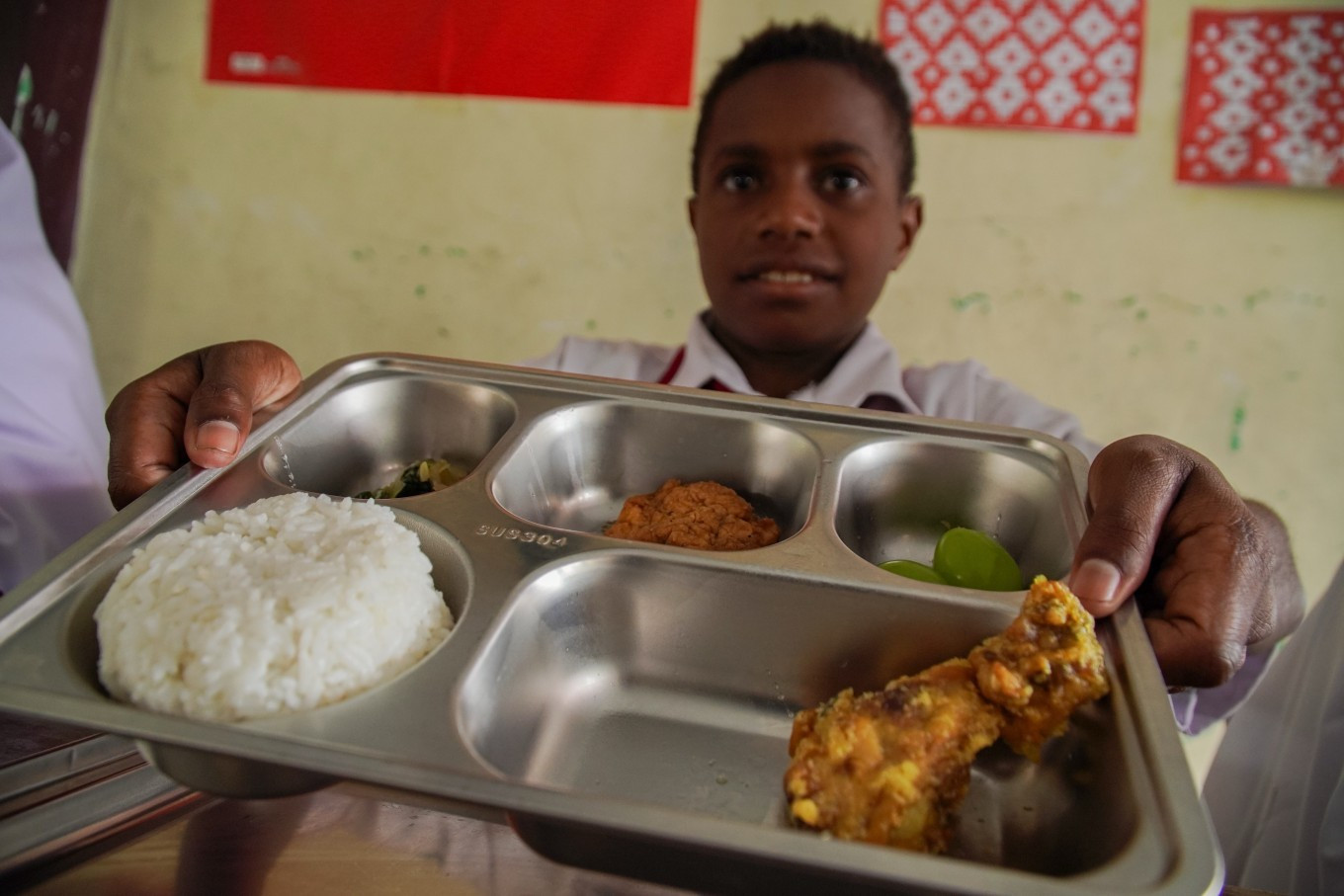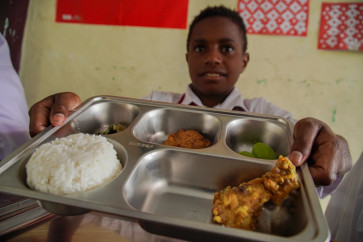Popular Reads
Top Results
Can't find what you're looking for?
View all search resultsPopular Reads
Top Results
Can't find what you're looking for?
View all search resultsWhen school lunches become a battlefield
A policy that should be as uncontroversial as “feed children well” has been turned into a stage for point-scoring, institutional turf wars and media skirmishes.
Change text size
Gift Premium Articles
to Anyone
I
ndonesia has quietly achieved what richer democracies often can’t: basic social goods that are broadly accepted across party lines.
The national health insurance (JKN) program expanded at remarkable speed and now shields the vast majority of Indonesians, with support that has cut across ideological divides. During COVID-19, vaccine uptake benefited from coordination with religious and community leaders, keeping the issue largely out of the kind of red-versus-blue trench warfare familiar to Americans. Even environmental stewardship – though hardly free of controversy – has tended to be framed in technocratic terms of haze mitigation, forestry governance and compliance, rather than as a daily identity contest.
Which is why the politicization of the free nutritious meal program feels so jarring. A policy that should be as uncontroversial as “feed children well” has been turned into a stage for point-scoring, institutional turf wars and media skirmishes.
Consider the scale and the stakes. The government earmarked roughly Rp 171 trillion (US$10.2 billion) in the 2025 budget for the free meals program, with indications of an even larger outlay in 2026. That scale rivals major social programs and creates irresistible incentives for political entrepreneurs and rent-seekers. In recent weeks, a wave of food-poisoning outbreaks triggered calls from civil society to pause the program, while the government conceded oversight lapses and scrambled to tighten standards, close substandard kitchens and ban certain processed items.
None of this was inevitable. If anything, the logic of the program mirrors the logic that made the JKN program broadly legitimate: fix a real social problem at national scale using a coalition that distrusts spectacle and prizes execution. Indonesia has one of the world’s most ambitious stunting-reduction agendas; a well-run school meals program should be a cornerstone of that effort.
So why are school lunches politicized here when they’re not the frontline of culture war in the United States – a country that famously turns masks and vaccines into partisan uniforms? The comparison is clarifying.
First, symbolic centralization versus local pragmatism. In the US, school food fights flare, but they are mostly episodic policy tussles nested in federalism: states and districts tweak, opt in or exit, and lately voters in states like Colorado have embraced universal meals through ballot measures with broad coalitions. That keeps the temperature lower than the existential battles over vaccines or curricula.



















